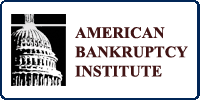Saginaw Chapter 7 Lawyer
One of the Best Chapter 7 Bankruptcy Attorneys in Saginaw, MI
Office Location
3125 Davenport Ave
Saginaw, MI 48602
Monday – Friday : 9:00 am – 5:00 pm
Saturdays : 9:30am – 11:30 by phone only
Appointments as late as 6:30 Mon-Thur by phone only
Highly Recommended
Get a Free Consultation
Saginaw Chapter 7 Attorney
Are You Drowning In Debt and Feeling Overwhelmed? It’s Time to Take Control of Your Financial Situation.
Frego Law, the leading Chapter 7 attorney in Saginaw, Michigan, is here to help you navigate the bankruptcy process. Our legal team understands the stress you’re under and is dedicated to providing the expert guidance and support you need.
Filing for Chapter 7 bankruptcy can provide a fresh start by eliminating unsecured debts and allowing for the opportunity to rebuild one’s financial future. With Frego Law by your side, you can achieve the debt relief you deserve and regain control of your life.
Contact Frego Law at (989) 401-7700 today to schedule a free consultation with our knowledgeable Chapter 7 bankruptcy attorneys. Take the first step towards a brighter financial future and regain your peace of mind.

Qualifying for Chapter 7 Bankruptcy in Saginaw County
Means Test
One of the primary eligibility criteria for Chapter 7 bankruptcy is passing the means test. This test evaluates your income and expenses to determine if you qualify for Chapter 7 based on your financial situation.
The means test compares your average monthly income over the past six months to the median income of a similar household size in Michigan. If your income is below the median, you automatically qualify for Chapter 7.
Credit Counseling
Another requirement is that Saginaw residents filing for Chapter 7 bankruptcy must have received credit counseling from an approved agency within 180 days prior to filing.
When the case is filed, an automatic stay goes into effect, which is a legal order that requires your creditors to halt all collection efforts immediately. This automatic stay provides you with immediate relief and protection from further creditor actions, such as foreclosure, wage garnishment, or repossession.

Discharging of Debt Through Chapter 7
In Chapter 7 bankruptcy, also called liquidation bankruptcy, a bankruptcy trustee is appointed to oversee your case. The trustee’s role is to review your financial information, determine which assets are exempt under Michigan law and can be retained, and liquidate any non-exempt assets to repay your creditors. The trustee will also conduct a meeting of creditors, where you will answer questions about your finances, and the trustee will verify the accuracy of your bankruptcy documents.
In Chapter 7, most unsecured debts can be discharged, meaning they are eliminated, providing a fresh start for the debtor. Credit card debt, personal loans, medical bills, and certain tax debts can typically be discharged through Chapter 7 bankruptcy.
However, certain debts, such as child support, alimony, student loans (unless undue hardship can be proven), and recent tax debts, are generally not dischargeable under Chapter 7.
Chapter 7 bankruptcy can have long-term consequences on your credit score and financial future. A bankruptcy filing will appear on your credit report for up to ten years and can impact your ability to obtain credit in the future.
Researchers found that 32% of those filing Chapter 7 were carrying student loan debt. On average, student loan debt made up nearly half of their total debt. [1]
Reasons to File for Chapter 7 Bankruptcy in Saginaw
- Overwhelming Debt: If you find yourself drowning in unmanageable debt, Chapter 7 bankruptcy can provide relief. It allows you to discharge most of your unsecured debts, such as credit card bills, medical expenses, and personal loans, freeing you from the burden of these financial obligations.
- Protection from Creditors: One of the immediate benefits of filing for Chapter 7 bankruptcy is the automatic stay. This legal order prevents your creditors from taking any further collection actions against you. This means that they cannot harass you with phone calls, wage garnishments, foreclosures, or repossessions during the bankruptcy process.
- No Repayment Plan: Unlike Chapter 13 bankruptcy, which requires a repayment plan, Chapter 7 bankruptcy allows you to wipe out your debts without having to make monthly payments to creditors. This can be especially advantageous if your income is insufficient to cover your debts or if you have no steady income at all.
- Quick Debt Discharge: Chapter 7 bankruptcy offers a relatively fast dischargeable debtprocess compared to other bankruptcy chapters. In most cases, the discharge of debts occurs within a few months, giving you a fresh financial start sooner rather than later.

- Exempting Property: Under Michigan law, individuals filing for Chapter 7 bankruptcy can exempt certain assets from being seized to repay their debts. This means you may be able to retain important assets, such as your home, car, necessary household items, and retirement accounts, depending on their value and the applicable exemption laws.
- Eliminating Tax Debts: Although not all tax debts can be discharged, Chapter 7 bankruptcy can help eliminate certain income tax debts if they meet specific criteria.
- Stop Wage Garnishment: If your wages are being garnished due to a judgment from a creditor, filing for Chapter 7 bankruptcy can put a stop to wage garnishment. This allows you to keep your hard-earned income and manage your finances more effectively.
While filing for Chapter 7 bankruptcy may have long-term effects on your credit score, it can provide you with the opportunity to rebuild your financial life.
Exemptions to Consider Before Filing Chapter 7 Bankruptcy
-
Homestead: One important exemption to consider is the homestead exemption. Under Michigan law, individuals filing for bankruptcy can exempt up to $40,475 of equity in their primary residence.
This means that if the equity in your home is within this exemption limit, you may be able to keep your home even after filing for Chapter 7 bankruptcy. - Motor Vehicle: Another key exemption to be aware of is the motor vehicle exemption. This exemption allows you to protect your vehicle from being taken by creditors.
In addition to the homestead and motor vehicle exemptions, other exemptions to consider include:
- Personal Property: Michigan allows exemptions for household goods, furniture, clothing, appliances, and other necessary personal items up to a certain value.
- Tools of Trade: If you are self-employed or have tools essential to your profession, you may be able to exempt them up to a certain value.
- Retirement Accounts: Most retirement accounts, such as 401(k) plans, IRAs, and pensions, are typically exempt from bankruptcy proceedings.
- Public Benefits: Certain public benefits, such as Social Security, unemployment compensation, and disability benefits, are generally exempt from being used to repay debts.
What Should You Do Before Filing Chapter 7 Bankruptcy?
- Seek Professional Advice: Consult with our experienced bankruptcy attorney before filing for bankruptcy. We will assess your financial situation, guide you through the bankruptcy process, and provide personalized advice. Our bankruptcy attorneys will help you understand the exemptions available to you, ensure all necessary paperwork is filed correctly, and represent your interests throughout the process.
- Evaluate your debts: Examine all of your debts closely and identify which ones can be discharged in bankruptcy. Chapter 7 bankruptcy is specifically intended to eliminate unsecured debts, such as credit card debt, medical bills, personal loans, and certain tax debts.
- Gather Financial Documents: Before filing, gather all relevant financial documents, including bank statements, tax returns, pay stubs, and any documentation related to your debts. This information will be vital for accurately completing your bankruptcy petition and determining your eligibility. Organizing your financial documents in advance will save you time and stress during the filing process.
- Complete Credit Counseling: Under the Bankruptcy Abuse Prevention and Consumer Protection Act, individuals filing for bankruptcy are required to complete credit counseling from an approved agency within 180 days before filing. Make sure to choose an approved credit counseling agency to fulfill this requirement.
- Consider Alternatives to Bankruptcy: While bankruptcy can provide significant debt relief, it is not the only solution. Explore alternative options, such as debt consolidation, negotiating with creditors, or pursuing debt management plans.
- Understand the Chapter 7 Process: Familiarize yourself with the Chapter 7 bankruptcy process, including the meeting of creditors, the role of the bankruptcy trustee, and the potential liquidation of non-exempt assets.

Benefits of Hiring a Saginaw Chapter 7 Bankruptcy Lawyer
- Expertise and Experience: Our Chapter 7 lawyers specialize in bankruptcy law and have extensive knowledge and experience in handling cases like yours. We are well-versed in the intricacies of the bankruptcy code and can guide you through the entire process. With our expertise, we will ensure that your bankruptcy petition is accurately prepared, increasing the chances of a successful outcome.
- Personalized Advice: Every financial situation is unique, and our Chapter 7 lawyers can provide personalized advice based on your specific circumstances. We will review your assets, income, and debts to determine whether Chapter 7 bankruptcy is the right option for you. If there are alternatives that may better suit your needs, our lawyers can help you explore those options and make an informed decision.
- Protection From Creditors: Once you hire a Chapter 7 bankruptcy lawyer, we will handle all communication with your creditors. This means you no longer have to deal with constant calls, letters, or collection attempts. Your lawyer will inform your creditors about your bankruptcy filing, stopping all collection actions and protecting you from harassment.
- Paperwork Assistance: Filing for bankruptcy requires substantial paperwork, including detailed financial statements, creditor lists, and income documentation. Our experienced Chapter 7 law firm will ensure that all necessary forms and paperwork are completed accurately and submitted on time. This reduces the risk of costly mistakes or omissions that could lead to complications or delays in your case.
- Representation during Court Proceedings: If your case requires attending court hearings or meetings with the bankruptcy trustee, your Chapter 7 lawyer will represent you throughout the process. Having legal representation can give you peace of mind, knowing that you have a professional advocating for your rights and interests. Your lawyer will handle any issues that may arise during the proceedings and work to achieve the best possible outcome for you.
- Maximizing Debt Discharge: Our Chapter 7 attorneys can help you identify which debts are dischargeable and which ones may not be. We will work to maximize the amount of debt that can be eliminated in your bankruptcy case.
Hiring our experienced bankruptcy lawyers in Saginaw can offer a range of benefits when filing for bankruptcy. From providing expert advice and guidance to handling paperwork and court representation, our Chapter 7 lawyers can make the process smoother, more efficient, and less stressful. Contact us for a free financial evaluation today.
Sources:
[1] Team, T. U., & Wimmer, A. A. (2021, January 14). Bankruptcy Statistics. Upsolve. https://upsolve.org/learn/bankruptcy-statistics/
[2] Zuckerman, A., & Zuckerman, A. (2020, May 26). 80 Bankruptcy Statistics: 2020/2021 Data, Insolvency Factors & Recovery Predictions. CompareCamp.com. https://comparecamp.com/bankruptcy-statistics/
[3] Dautovic, G., & Dautovic, G. (2023, July 4). Bankruptcy Statistics and the Things We Can Learn From Them. Fortunly. https://fortunly.com/statistics/bankruptcy-statistics/

Received Accolades:
206-2010, 2012, 2014-2021

American Bankruptcy Institute

Certified as a Bankruptcy Specialist by ABC

National Association of Consumer Bankruptcy Attorneys

Better Business Bureau
Office Location
3125 Davenport Ave
Saginaw, MI 48602
Monday – Friday : 9:00 am – 5:00 pm
Saturdays : 9:30am – 11:30 by phone only
Appointments as late as 6:30 Mon-Thur by phone only
